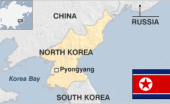Re The UN General Assembly Speaker Schedule is Here! I note that whoever will be speaking for Canada this year…
Wednesday Night #1704
Written by Diana Thebaud Nicholson // October 29, 2014 // Wednesday Nights // Comments Off on Wednesday Night #1704
A lively evening which unexpectedly focused on the climate refugees reference rather than the greater issue of the waves of migrants beating against the southern European coasts of which there was yet another demonstration on Wednesday (Hundreds of Migrants Storm Morocco-Spain Border). Astonishingly. several individuals were more interested in contesting the scientific arguments surrounding climate change than in discussing the grave geopolitical consequences of illegal migration. And the debate did not end on Wednesday Night, but was hotly pursued by e-mail throughout the next 48 hours.
T H E P R O L O G U E
What a contrast between the two dominant topics for Canadians over the past week have been the Attack on Parliament Hill last Wednesday (and to a slightly lesser degree the assassination of Warrant Officer Patrice Vincent in St-Jean-sur-Richelieu two days earlier) and the abrupt departure (firing) of Jian Ghomeshi from CBC.
The first has brought people across the country together – even a temporary truce in the House – in a massive demonstration of support for our military heroes and our institutions, along with a determined resilience. There is little to add to the many thoughtful words and gestures of Canadians from all walks of life. Going forward, we hope for equivalent thoughtfulness in determining how to deal with the root causes of ISIS-inspired terrorism and how best to protect our country without resorting to the imposition of draconian measures.
On the second topic, the less said the better. At present the he-said-she-said nature of the statements flying about the traditional and social media offers little basis for informed opinion. [Robyn Urback on Jian Ghomeshi: It’s foolish to take a side — either side — without the facts]
A deep sigh of relief could be heard across the country- although not shared by North America’s late-night talk show hosts [John Oliver – Doug Ford of Toronto] – when the news broke that Toronto would no longer suffer the slings and arrows of [the] outrageous fortune of having a Ford as its Mayor. We wish John Tory well in what will no doubt be a challenging mandate not made easier by the Ford family’s other successes (Rob and Michael Ford won their races) and Rob’s announcement that he plans to be back on the ballot in 2018.
Hurricane Hazel has stepped down after 36 years as Mayor of Etobicoke. In her case, we are all in favour of cloning
And in Alberta, the governing Progressive Conservative Party won all four by-elections and Premier Jim Prentice now has a seat in the legislature.
National elections in three other regions of the world may be expected to have more impact on world affairs than the departure of Rob Ford from the Mayor’s office (believe it or not).
In Brazil, 100 milllion voters turned out in an exemplary poll, but observers believe that re-elected president Dilma Roussef has an uphill battle ahead as she must now pull together a deeply divided country.
Tunisia — The Guardian reports that “Tunisia’s Ennahda party, the first Islamist movement to secure power after the 2011 Arab spring revolts, has conceded defeat in elections that are expected to make its main secular rival the strongest force in parliament.”
And in Ukraine, there was good news for President Petro Poroshenko; victory for pro-Europe parties giving him the mandate to end a separatist conflict, implement his pro-Western course and democratic reforms.
Next up, the U.S. mid-terms next Tuesday. Most are predicting that the Republicans will take emerge with a majority in the Senate as well as the House [Republicans have high Senate hopes — and real presidential ticket troubles: Neil Macdonald]. If you have not been following the races avidly, the BBC’s entertaining summary: Five things to know is likely as good a guide as you need at this stage. The big question is whether a Republican Senate will behave like adults and change the disgraceful gridlock in Washington.
Our friend Nick has sounded a positive note about an important* but often overlooked country that has also held elections recently.
Quote of the Week : Democracy is about listening to people … So when the opposition wants to change that and the people don’t want it, then of course I think the people are on my side … We want to channel it from consumption to productive activity …It’s important to explain to people so they can accept our decisions– Joko Widodo (age 53), the newly-elected President of Indonesia (who, as governor of the capital, Jakarta, was known for walking about in the city & talking to the hoi polloi about issues, & who is the country’s first ever President from outside the military/political elite). The first part of the above quote refers to Parliament’s unpopular decision last year to do away with direct elections for governors (so as to keep other outsiders from ever becoming President in the future), a move now expected to be reversed. And the second part relates to the third-rail issue of Indonesian politics, the massive fuel subsidies that mostly benefit the more well-to-do. He wants to ease them out over time, in order, he says, to free up money to fund social benefits (that will benefit the less well-to-do) & promote grass roots economic development (in the hope this will reverse the recent years slide in GDP growth to the 5% range?). Quaint & naive in 21st century democracy terms as these sentiments may seem at first glance, if this ‘reaching out to the people over the heads of the elite’ were to work in this Muslim country, it could have major consequences worldwide (all the more reason to wish him good luck & hope he succeeds).
*The fourth largest country in the world by population, it has the most Muslims of any nation (the vast majority non-extremist). It has on a PPP basis the world’s 9th largest-, & on a nominal basis its 16th largest-, economy (that grew by over 50% during the period 2009-2013), although its GDP per capita is 101st on a PPP-, & 115th on a nominal-, basis).
Immigration & Migration
Judith Patterson wonders why there is so little discussion of the waves of migrants from Africa and the Middle East seeking a better life in Europe and the inability of the EU where the ‘lucky’ (many die en route) arrive to respond, let alone absorb, them. The ever-reliable BBC summarizes the problem Graphics: Europe’s asylum seekers and makes the distinction between the asylum-seekers in Europe and the vast numbers of refugees, pointing out that “developing countries host more than 80% of the world’s refugees. People fleeing conflict or persecution often end up in a neighbouring country – but many do not want to settle there permanently. Pakistan, with 1.6 million refugees, ranks highest for sheltering refugees. The vast majority of Afghan refugees are in Pakistan and Iran. Most Syrian refugees are in neighbouring Turkey, Lebanon, Jordan and Iraq, and most have not made formal asylum claims.”
The recently published distressing photo* of migrants attempting to fence-jump into the Spanish enclave of Melilla, one of two cities (the other is Ceuta) on the Moroccan coast that are the only land borders between the European Union and Africa, illustrates a huge problem that is growing daily for countries bordering the Mediterranean. The UNHCR has warned Spain against its plan to plans to instantly deport- without a hearing- migrants who clamber over the border fence UN warns Spain against migrant deportations, but offers no solution to the problem of over 5,000 people who have arrived this year.
The European Commission also warns that illegal immigrants are often the victims of human trafficking and has urged strict enforcement of laws against trafficking.
While asylum seekers are fleeing political persecution, the new category of climate change refugees attempting to escape conditions related to climate change is a source of increased concern among international organizations (see UNHCR: Climate change)
* A more graphic and truly dreadful picture was published in the National Post in May (Hundreds manage to storm across Spanish border at Melilla as 1,500 migrants charge towering barbed-wire fence).




